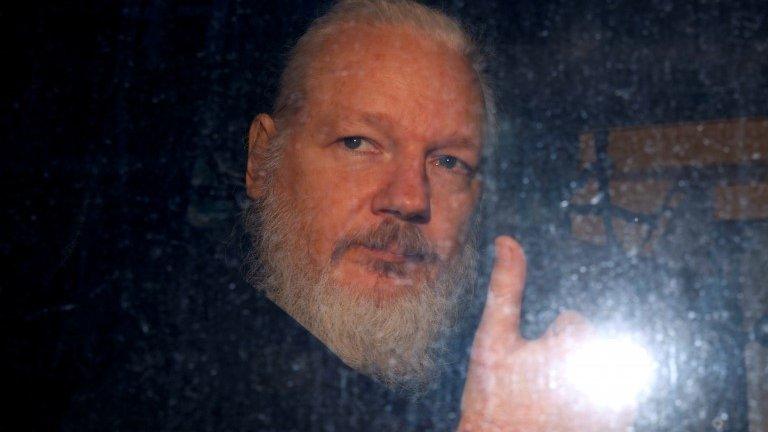Julian Assange: Why is the Wikileaks co-founder a wanted man?
- Published

The bearded figure being dragged from his home, into a waiting police van, was a far cry from the man who had entered the building seven years previously.
Julian Assange - who co-founded website Wikileaks - had sought sanctuary in Ecuador's embassy from extradition to Sweden and, he feared, to the US.
Ecuador withdrew his asylum on Thursday, leading to his arrest and then conviction for failing to surrender to the court.
But who exactly is Assange and what has he been accused of?
Julian Assange being dragged from the Ecuadorean embassy in London
Who is Julian Assange?
Julian Assange was born in Townsville, Australia, in 1971. His parents ran a touring theatre and his childhood was filled with upheaval. He became a father at 18, later becoming entangled in custody battles.
He showed an aptitude for computers and was fined several thousand Australian dollars in 1995 after pleading guilty to hacking activities. Assange avoided jail on the condition that he would not reoffend.
He went on to help write a book about the internet, before studying physics and maths at Melbourne University.
In 2006, Assange co-founded the whistle-blowing website Wikileaks, along with a group of like-minded people from across the internet.
What happened with Wikileaks?
The site published thousands of classified documents covering everything from the film industry to national security and war.
One of its most high-profile releases came in 2010, when it published a video from a US military helicopter that showed the killing of 18 civilians in Baghdad, Iraq, external.
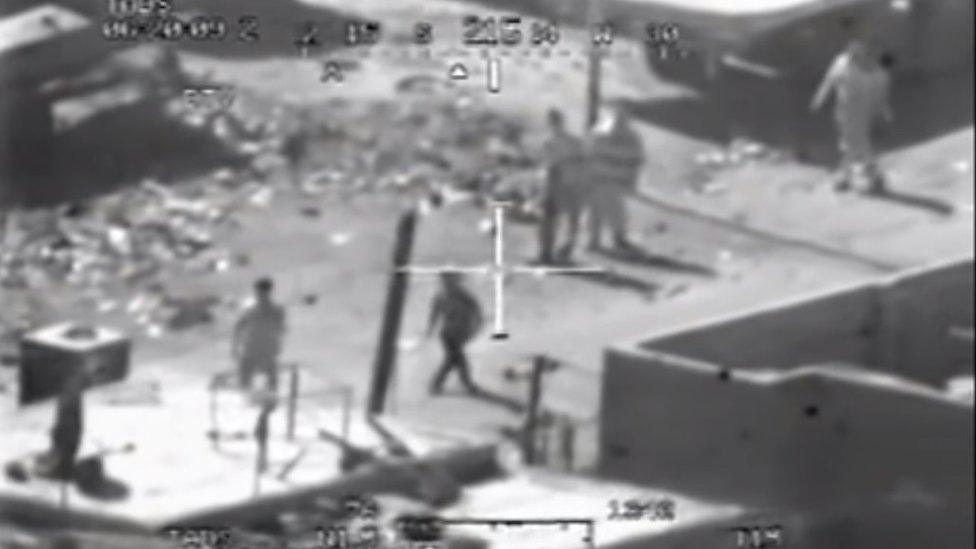
Helicopter footage was posted on Wikileaks
In the same year, Wikileaks published hundreds of thousands of documents leaked by former US Army intelligence analyst Chelsea Manning.
They revealed how the US military had killed hundreds of civilians in unreported incidents during the war in Afghanistan.
Files from the Iraq war showed that 66,000 civilians had been killed and that prisoners had been tortured by Iraqi forces.
At the time, the US government made it clear it hoped to prosecute Assange over the leak of the secret files.
How did Sweden get involved?
Sweden issued an international arrest warrant for Assange over allegations of sexual assault in 2010. He was detained in the UK, and later bailed over the allegations.
It followed claims that while on a visit to Stockholm to give a lecture, Assange had raped one woman and sexually molested and coerced another.
Assange says both encounters were entirely consensual and the Swedish efforts against him are part of a smear campaign.
Who is Julian Assange?
Why did he enter Ecuador's London embassy?
Following a long legal battle, the Wikileaks founder took refuge in Ecuador's embassy in 2012 to avoid being taken to Sweden to be questioned.
He argued that he could also be extradited to the US and put on trial for publishing the secret US documents
The Ecuadorian embassy was an obvious choice, since the South American country's then-president, Rafael Correa, was a strong advocate for Wikileaks,
Swedish prosecutors dropped the rape investigation into Assange in 2017 because they were unable to formally notify him of the allegations while he stayed in the embassy.
The two other charges of molestation and unlawful coercion had to be dropped in 2015 because time had run out.
But even after Sweden dropped the charges, Assange stayed in the embassy as he still faced a UK charge of failing to surrender to a court.
What do the authorities say?
Relations between Assange and Ecuador's government worsened under President Lenín Moreno, who took office in 2017.
Before withdrawing Assange's asylum, Ecuador accused him of improper behaviour, interference in the affairs of other countries and spying.
Prime Minister Theresa May welcomed Assange's arrest, saying it showed that "no one is above the law" in the UK.
But Labour leader Jeremy Corbyn said Assange had revealed "evidence of atrocities in Iraq and Afghanistan" and that his extradition to the US "should be opposed by the British government".
Shadow home secretary Diane Abbott said Assange should face the criminal justice system if Swedish authorities decide to charge him.
What do his supporters say?
Assange's lawyer Jennifer Robinson said they would fight the US extradition request.
She said it set a "dangerous precedent" where any journalist could face US charges for "publishing truthful information about the United States".

Pamela Anderson visiting Julian Assange at the Ecuadorean Embassy
Actress Pamela Anderson - a friend of Assange - has said the UK is "America's bitch" in response to the arrest.
What will happen to him now?
Assange faces legal action in three countries - the UK, Sweden and the US.
Westminster Magistrates' Court found him guilty of a British charge of breaching bail on Thursday. He faces up to 12 months in prison for that conviction.

Meanwhile, Swedish authorities have said they are considering reopening their investigation into sexual assault allegations against him.
The US has already charged the 47-year-old with a single count of participating in the hacking of intelligence computers to reveal controversial intelligence operations in the United States.
But he is likely to face more charges if he is extradited to the US - a decision that will be taken by a judge and the UK home secretary.
If Sweden also makes an extradition request, one legal expert has said it would be for the home secretary to decide which request would take precedence.
- Published11 April 2019
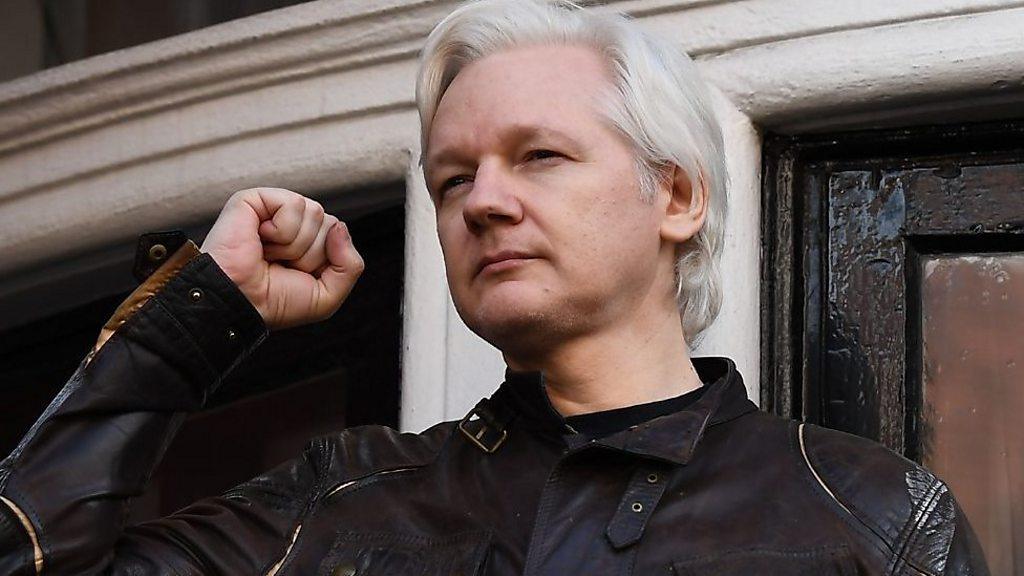
- Published12 April 2019
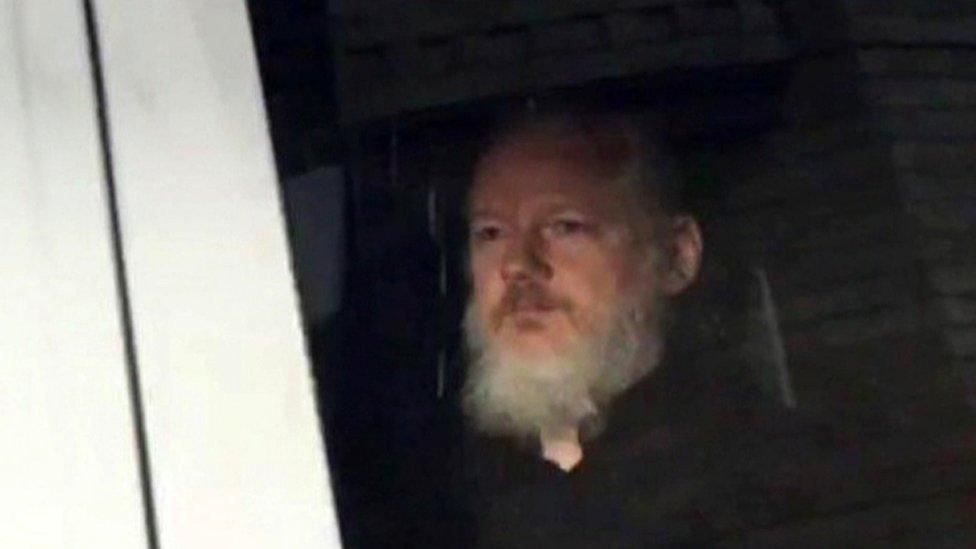
- Published25 June 2024
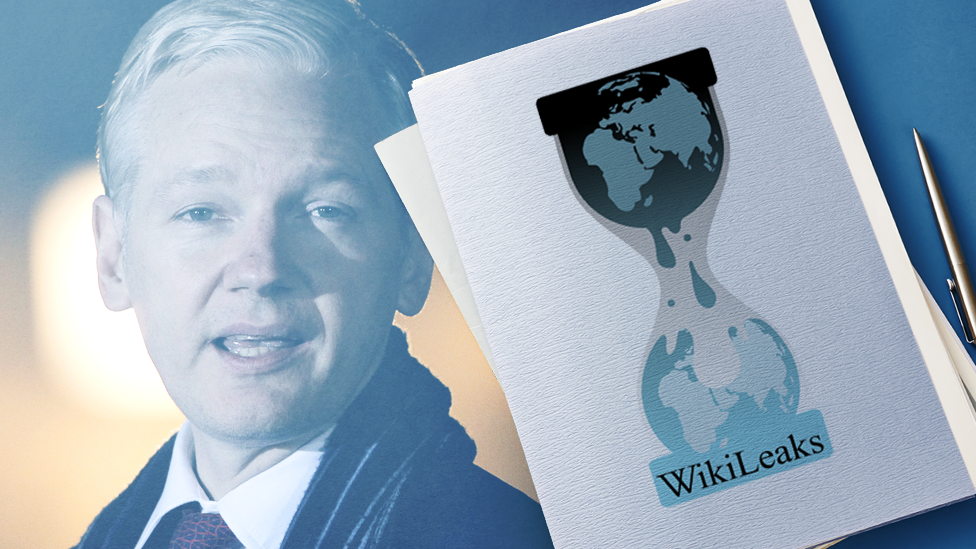
- Published12 April 2019
